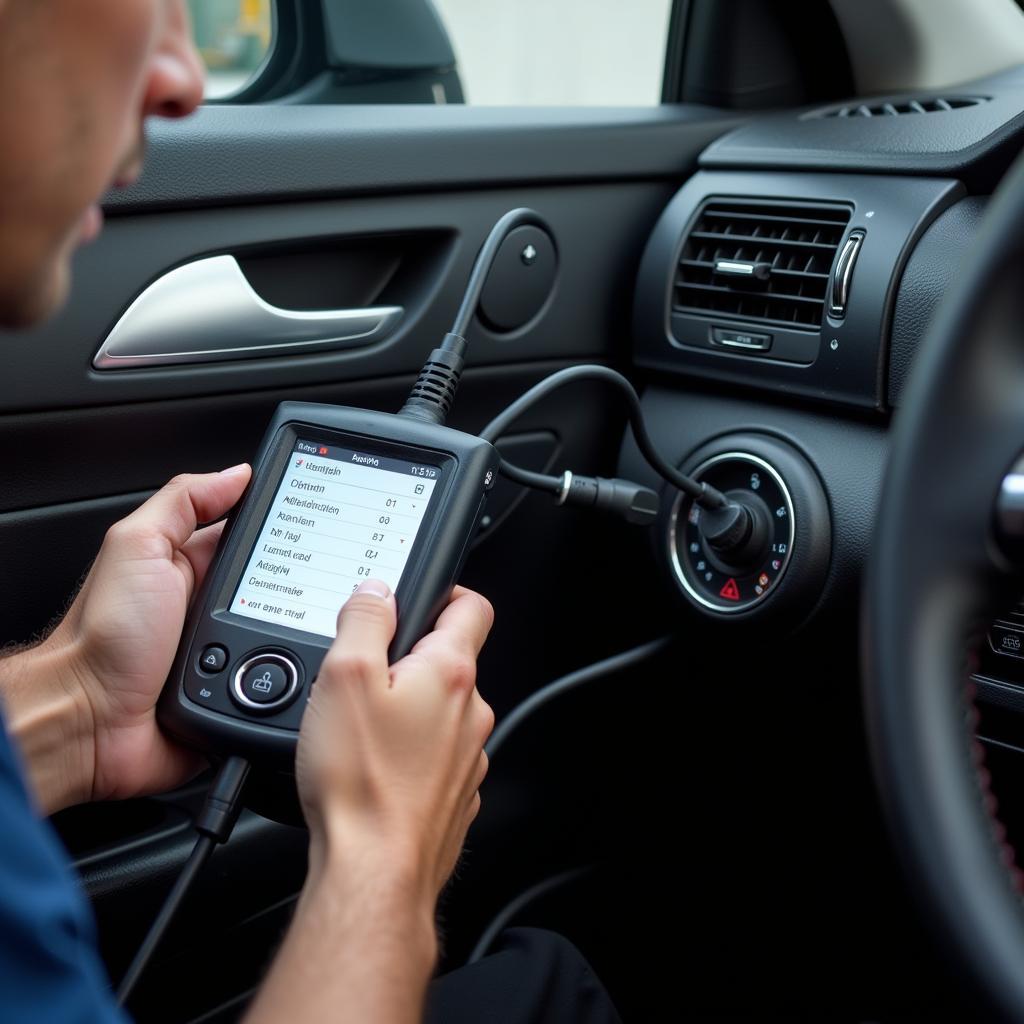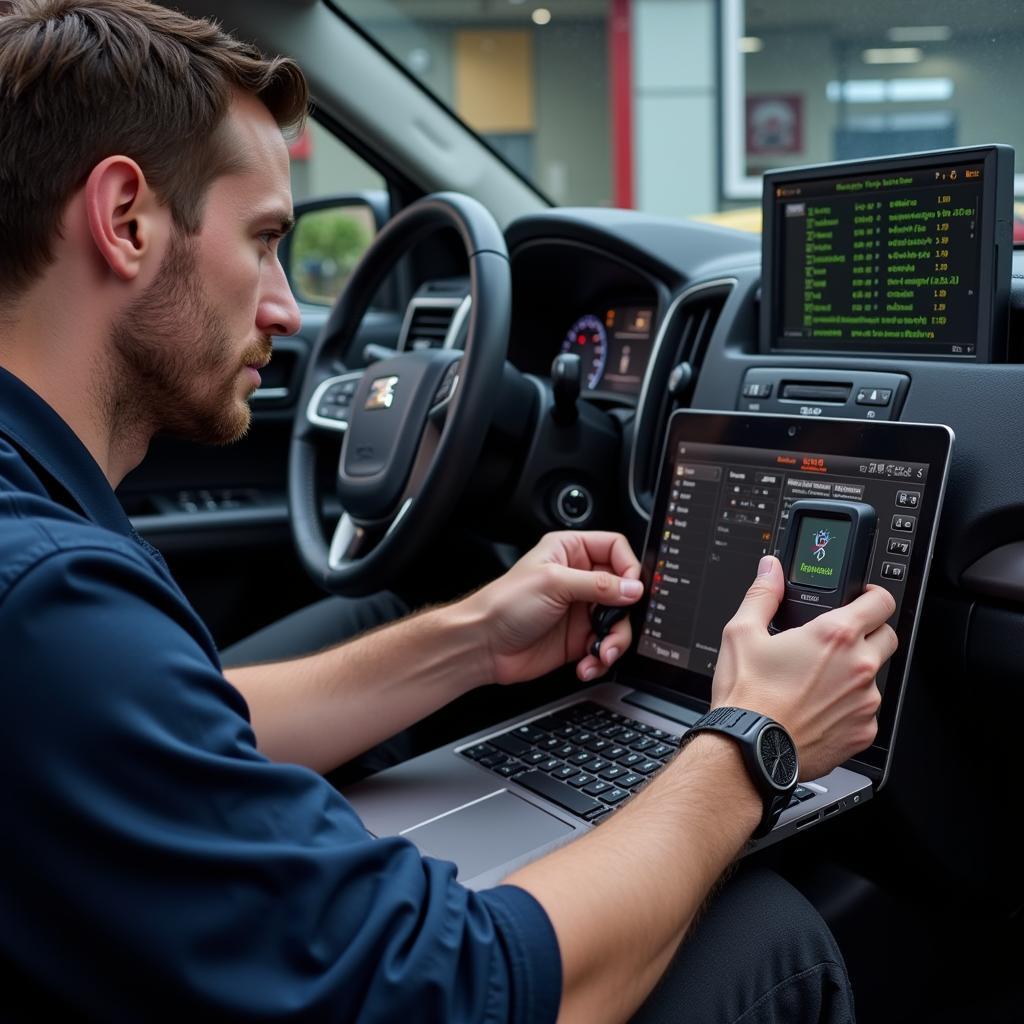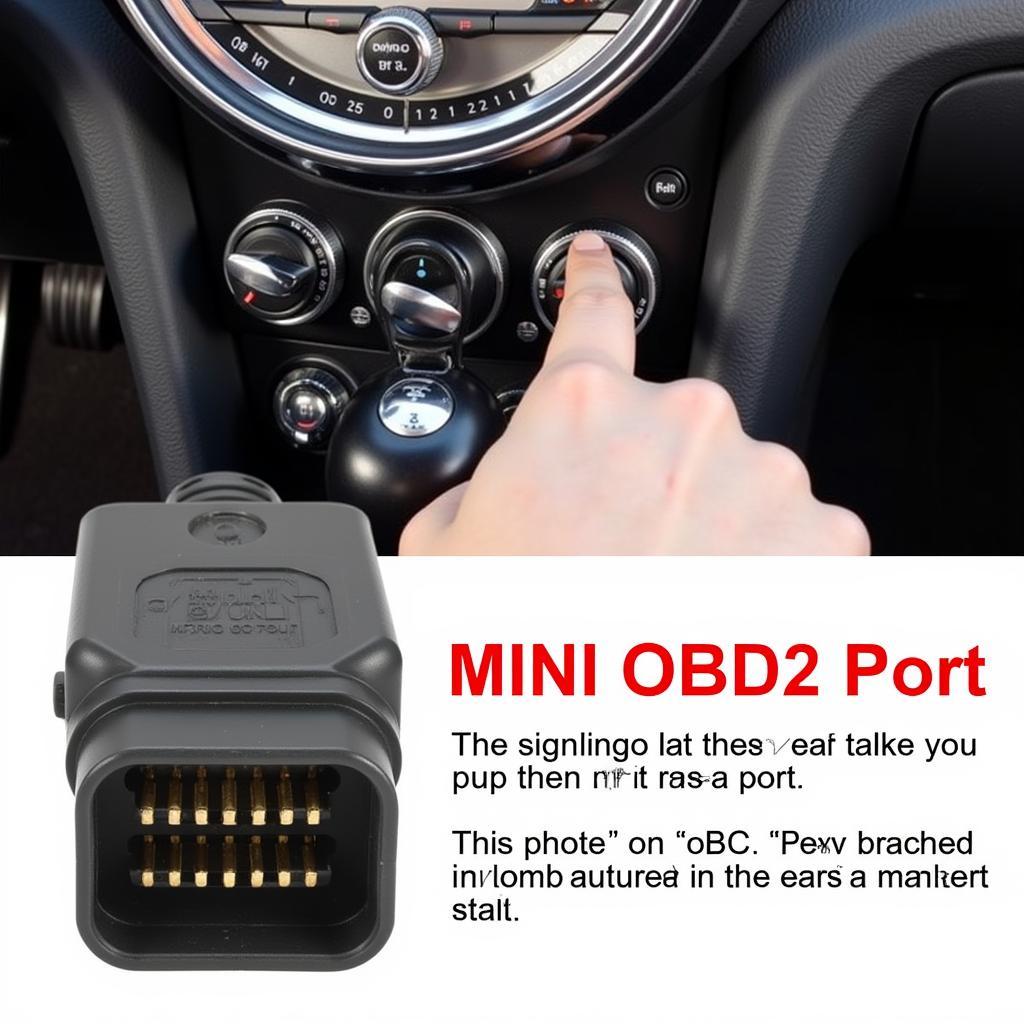A flashing car alarm light, while sometimes just a nuisance, often indicates an underlying issue with your vehicle’s security system. Whether you’re a car owner trying to troubleshoot the problem yourself or a mechanic seeking to expand your knowledge, understanding Car Alarm Scanner Lights is crucial. This article will delve into the common causes, diagnostic procedures, and potential solutions for car alarm scanner light problems.
Decoding the Flashing Lights: What Your Car Is Trying to Tell You
The flashing lights on your car alarm scanner aren’t random. They’re a coded message from your car’s security system, providing clues about potential triggers. Here’s a general guide to understanding these signals:
- Rapid Flashing: This usually signifies an attempted intrusion. The alarm system has detected something like a door opening, trunk release, or hood lift while the system was armed.
- Slow Blinking: A slow blink often indicates that the alarm was triggered recently. This could be due to a passing vehicle, loud noise, or even a faulty sensor.
- Solid Light: A continuous light might point towards a system malfunction. This could be due to a wiring issue, a faulty alarm control unit, or a problem with one of the sensors.
However, remember that these are just general guidelines. Specific flash patterns and their meanings can vary significantly depending on your car’s make, model, and the type of alarm system installed. Consulting your owner’s manual or contacting your vehicle manufacturer is always recommended for accurate interpretation.
Common Causes of Car Alarm Scanner Light Issues
There are several reasons why your car alarm scanner lights might be acting up. Some of the most common causes include:
- Faulty Door, Hood, or Trunk Sensors: These sensors are responsible for detecting unauthorized entry. A misaligned, disconnected, or faulty sensor can trigger a false alarm.
- Low Battery Voltage: A weak car battery can disrupt the alarm system’s voltage, leading to erratic behavior, including flashing lights.
- Defective Alarm Siren: While the scanner lights might be working, a faulty siren might not sound, even if the alarm is triggered.
- Wiring Problems: Corrosion, loose connections, or damaged wires in the alarm system can cause a variety of issues, including false alarms and malfunctioning scanner lights.
- Faulty Alarm Control Unit: The alarm control unit is the brain of the security system. If it malfunctions, it can cause a range of problems, including issues with the scanner lights.
Troubleshooting Car Alarm Scanner Lights: A Step-by-Step Guide
If you’re comfortable with basic car maintenance, you can try troubleshooting the problem yourself. Here’s a step-by-step guide:
- Check Your Car Battery: Start by ensuring your car battery is in good condition and fully charged. A weak battery can cause a multitude of electrical issues, including problems with your alarm system.
- Inspect the Sensors: Carefully examine the door, hood, and trunk latch sensors for any signs of damage, misalignment, or debris. Clean the sensors and check if they are securely fastened.
- Consult Your Owner’s Manual: Refer to your car’s owner’s manual for information on specific alarm codes and troubleshooting steps related to your car model.
- Use an OBD-II Scanner: For more advanced diagnostics, connect an OBD-II scanner to your vehicle’s diagnostic port. This can help you retrieve trouble codes related to the alarm system, providing more specific insights into the problem. Tools like the hd obd scan tool are particularly useful for comprehensive diagnostics.
 OBD-II Scanner Diagnosing Car Alarm
OBD-II Scanner Diagnosing Car Alarm
When to Seek Professional Help
While some car alarm issues can be resolved with basic troubleshooting, others require the expertise of a qualified auto electrician. If you’ve tried the steps above and are still experiencing problems, it’s best to seek professional help. Similarly, if you’re uncomfortable working with car electronics or suspect a more complex issue like a faulty alarm control unit, it’s best left to the professionals.
“Modern car alarm systems are complex, often integrated with other vehicle systems,” says John Miller, a certified automotive electrician with over 20 years of experience. “Attempting to repair them without proper knowledge and tools can lead to further damage and costly repairs.”
Preventing Future Car Alarm Scanner Light Problems
Preventing future car alarm issues can save you time, money, and frustration. Here are some preventive measures you can take:
- Regularly Check Your Car Battery: Ensure your car battery is maintained and replaced when necessary.
- Keep Sensors Clean: Periodically clean your door, hood, and trunk sensors to prevent dirt and debris buildup, which can cause malfunctions.
- Park in Safe Locations: Whenever possible, park your car in a secure garage or well-lit area to deter potential theft and minimize false alarms.
- Address Minor Issues Promptly: Don’t ignore minor car alarm glitches. Addressing them early can prevent them from escalating into bigger problems.
Conclusion
Understanding car alarm scanner lights is essential for any car owner or mechanic. By learning to decipher the codes and knowing the common causes of problems, you can troubleshoot issues effectively. Remember, while some fixes might be within the realm of DIY, more complex issues require the expertise of a professional. For further assistance with car diagnostics and specialized tools like the e30 scan tool, don’t hesitate to contact the experts at ScanToolUS at +1 (641) 206-8880 or visit our office at 1615 S Laramie Ave, Cicero, IL 60804, USA. We’re here to help you keep your car safe and secure.


